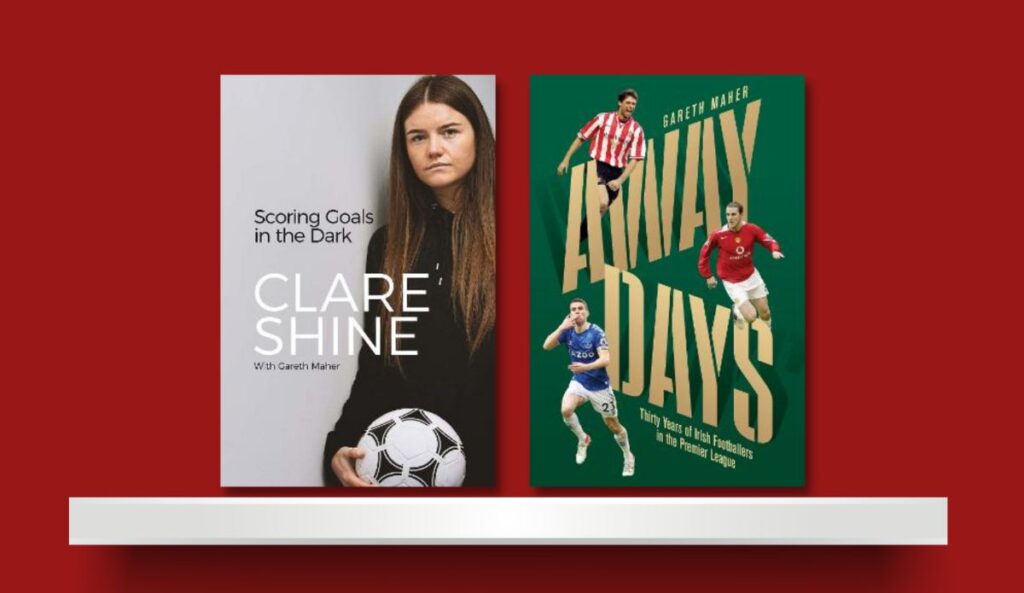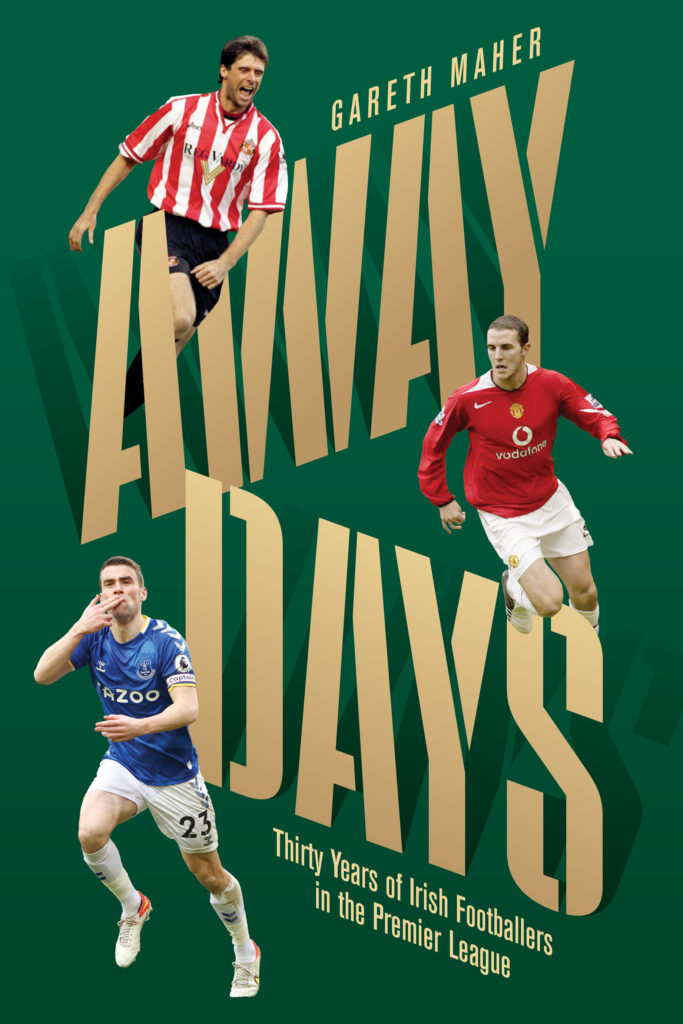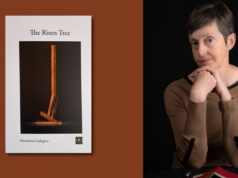
Gareth Maher on ghostwriting, trust, and how in sport, it’s all about the story
by Gareth Maher
Storytelling and sport belong together. They are natural companions who will always swipe right because they bring out the best in each other.
Whether it is Jesse Owens making a stand at the 1936 Olympic Games, or a girl from Bray, County Wicklow becoming the best female boxer of all time, there is always a story to tell alongside the sporting achievement – or failure – that will compel readers. It’s what captivates us as much as the talent and skill displayed by athletes.
Scoring Goals in the Dark
It is also why I decided to write two books in 2022. The books are very different from each other but they are both about sportspeople (specifically footballers), who had a unique story to tell.
In Scoring Goals in the Dark (Pitch Publishing) I was the ghostwriter for Clare Shine, and helped to share her courageous tale of battling with mental health, anxiety, peer pressure, alcohol and drug addiction, attempted suicide and recovery.
It is a raw account of a young woman who seemingly had everything as a footballer but struggled with personal demons.
The role of the ghostwriter
When taking on the role of a ghostwriter, one should always read the fine print (or is it invisible print?) where you also commit to becoming an unofficial therapist, a dedicated researcher, a trusted confidant and someone who has to make sense of the scattered thoughts and complicated incidents that have shaped someone else’s life.
It is not a case of simply transcribing the subject’s ramblings and sending the file off to an editor to publish. There is a duty of care involved that nobody can really prepare you for, especially when dealing with deeply emotional topics.
Of course, the process is made a lot easier if you are working with someone who is willing to open up and tell their story in full. This only comes when a level of trust is built up and that is how this book first originated.
I had previously worked with Clare and that is why she reached out when wanting to share her story. Without that trust, the book probably would not have been created at all.
Away Days: Thirty Years of Irish Footballers in the Premier League
It was the same for my second book, Away Days: Thirty Years of Irish Footballers in the Premier League (New Island), because that came together through a bond built up with certain players.
Once you have established a connection with an interviewee then the process can flow a little easier – certainly with the type of books that I took on this was essential because, ultimately, it’s about their story. So it’s the writer’s job to extract as many key details, interesting angles, and surprising plot lines as possible.

All about the story
It has to be all about the story. In Away Days there are 30 of them—one for each season of the English Premier League—to recognise the impact of Irish players on its first 30 years.
That wasn’t the original plan for the book, but the structure developed from the stories that the different players had. There were 197 Irishmen who featured in the first three decades of the Premier League so I could have chased a lot more stories, but 30 felt just right, especially since I deliberately wrote them as short chapters for the reader to easily thumb their way through the pages.
The idea behind Away Days was to tell different types of stories from subjects whose previous experiences of storytelling has often centered around their sporting exertions.
For example, Stephen Quinn opens up about the grieving process of a young man who lost his parents in quick succession, Seamus Coleman acknowledges the importance of time and how that has shaped his career and is now affecting his life, while Jonathan Walters talks about the lack of care given to footballers once they stop kicking a ball.
They are real stories that anyone can relate to but made that bit more interesting because they are coming from elite footballers who played in the best league in the world.
Striking a balance
I felt that it was my job, as the writer, to make the subject think a little differently about their story so that we could find something new in it that they may not have thought about before.
This happened in the chapter on Stephen Ward, where the focus moves from how he battled to establish himself as a professional footballer, and being thankful for that opportunity, to probably not pushing hard enough to earn more money for fear of jeopardising his position and contract.
There also needs to be a sensible approach to telling one’s story because not everyone will have the kind of experiences that Clare Shine has had. Nor should every detail of one’s life be available for public consumption.
So a balance must be struck between the writer and the subject on what kind of story to tell.
It is only then that the writer can truly work their magic. This might come across as being quite a restrictive process, but it shouldn’t be and it certainly wasn’t for me. In fact, the players who trusted me with their stories allowed me the freedom to tell those stories in my own way – and I’d like to think that helped make the books more engaging for the reader.
I believe that storytelling in sport can be just as powerful as anything from fiction or non-fiction. With the two books that I have written this year, I hope that I have introduced new stories that can enterain and engage readers.













